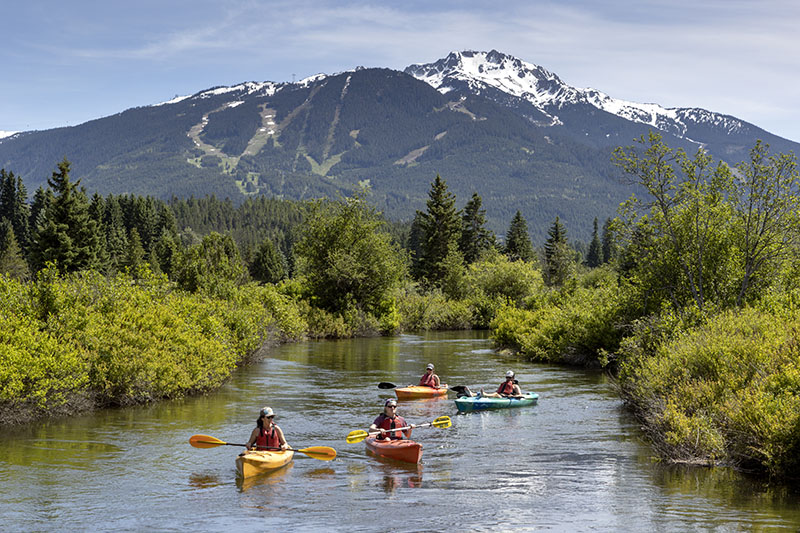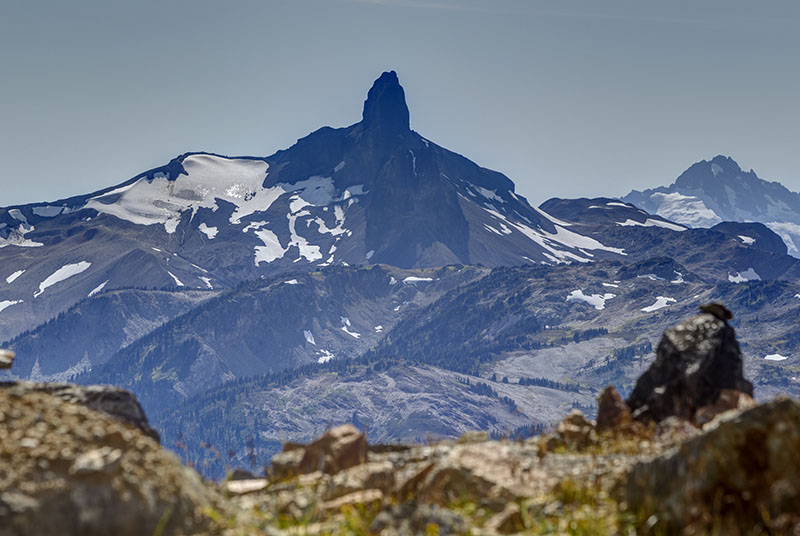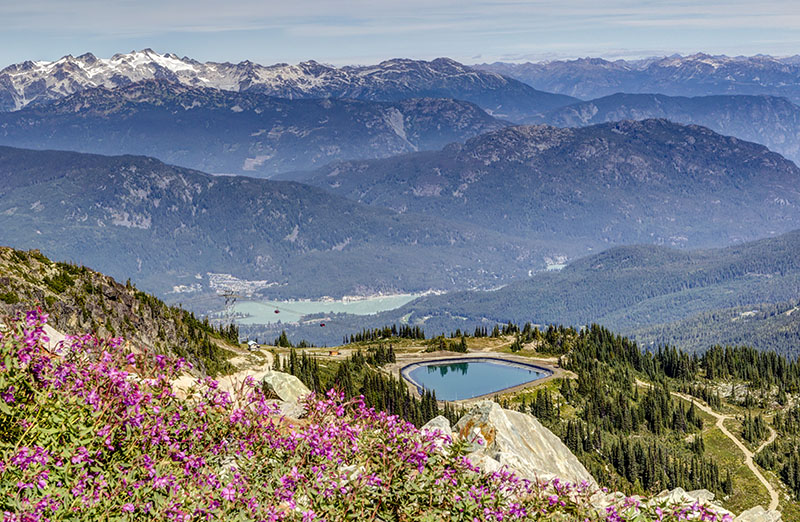WHISTLER Welcome to Sea to Sky Country
By David Burke / Images By Joern Rohde

Whistler is a great place to get away from it all — and as COVID-related travel restrictions ease, a mountain town with lots of places to spread out while stretching the legs, breathing in some fresh mountain air, and appreciating nature after being cooped up and vacation-starved during the pandemic. Sunny afternoons by the lake, hiking in the alpine, a barbecue and drinks on the patio … there is just so much here, and so many options for recreation and relaxation, that you can’t go wrong. Whistler is best known for its skiing and snowboarding and as Host Mountain Resort for the 2010 Winter Olympics and Paralympics, but many have opined that summer is their favourite time of year in the resort. Given that it’s also home to the world-leading Whistler Mountain Bike Park and an extensive and well-maintained trail network for biking, hiking and running, its vibrant arts scene, the record-setting Peak 2 Peak Gondola and incomparable golf courses, that’s not at all surprising.
For centuries, the Whistler Valley was hunting and berry-picking territory for the Squamish and Lil’wat peoples. The first European fur trappers, loggers and miners arrived in the late 1800s. In 1914, the same year the Pacific Great Eastern Railway arrived, Myrtle and Alex Philip put the community (then known as Alta Lake) on the tourism map when they opened Rainbow Lodge, a summertime fishing establishment that quickly caught on with visitors from across Canada.
Franz Wilhelmsen and his business partners arrived in 1960 with a vision to make what was then known as London Mountain the host mountain for alpine events the 1968 Games. With a name change to Whistler Mountain, the ski hill opened in 1966, but the Olympic dream didn’t come to fruition until 2003 when Vancouver and Whistler were chosen to host the 2010 Games. Vestiges of Whistler’s Olympic legacy are around town, with several sets of Olympic rings and “Inukshuks” — stylized Inuit rock cairns that served as the “welcome” symbol of the Games.
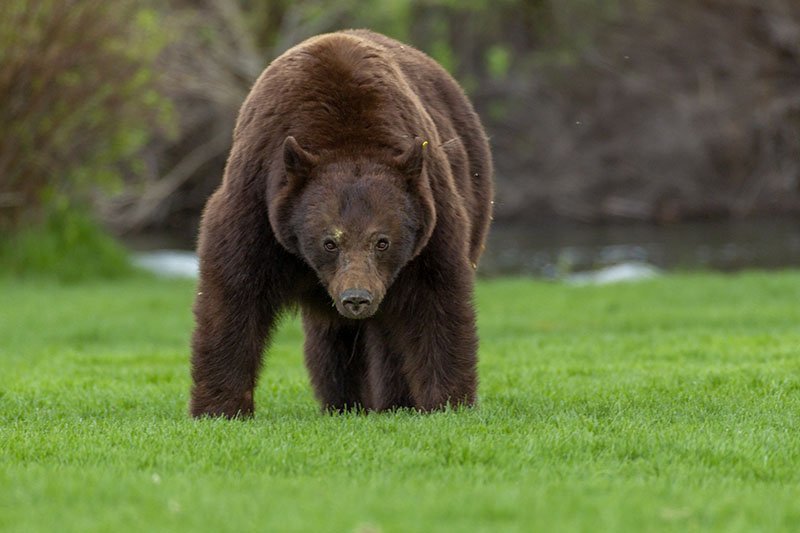
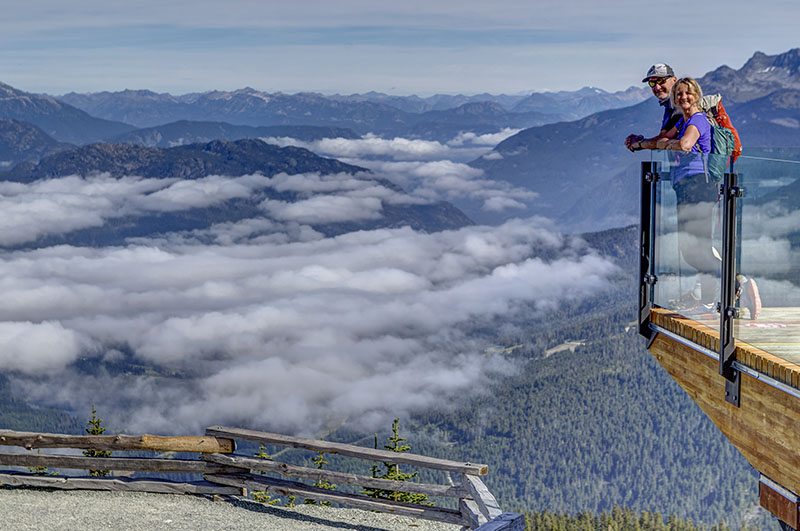
Whistler Olympic Plaza, where medal ceremonies took place during the 2010 Olympics and Paralympics, is a great place to pull out the Frisbee and enjoy a picnic or a drink purchased from a nearby café, in the shadow of the Olympic rings.
At the Whistler Sliding Centre, near the Village, you can experience the exhilaration of the world’s fastest bobsleigh track, summertime edition. Seven days a week until Sept. 5, guests can take a run down the track at speeds up to 90 km/h (55 mi/h) on wheeled sleds with a driver and up to four passengers. Groups smaller than four will be spread out to ensure a Covid-safe experience. Advance booking is recommended. You can also take a free, self-guided tour of the facility. whistlersportlegacies.com
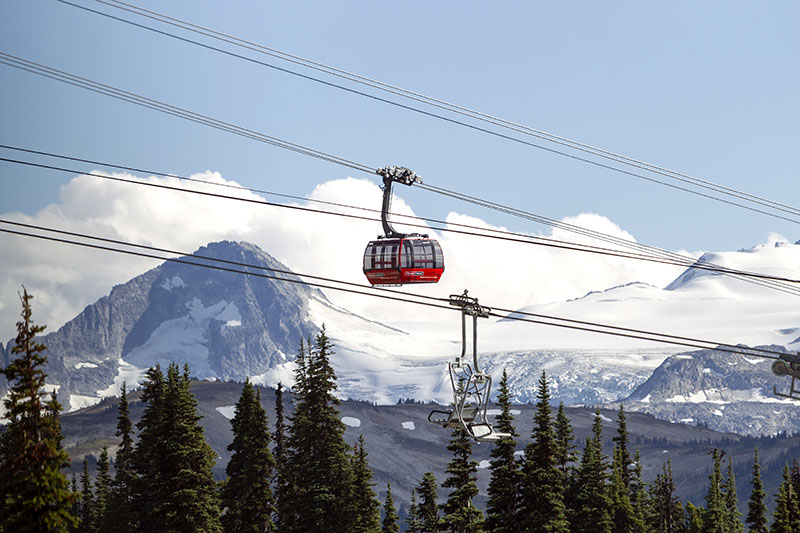
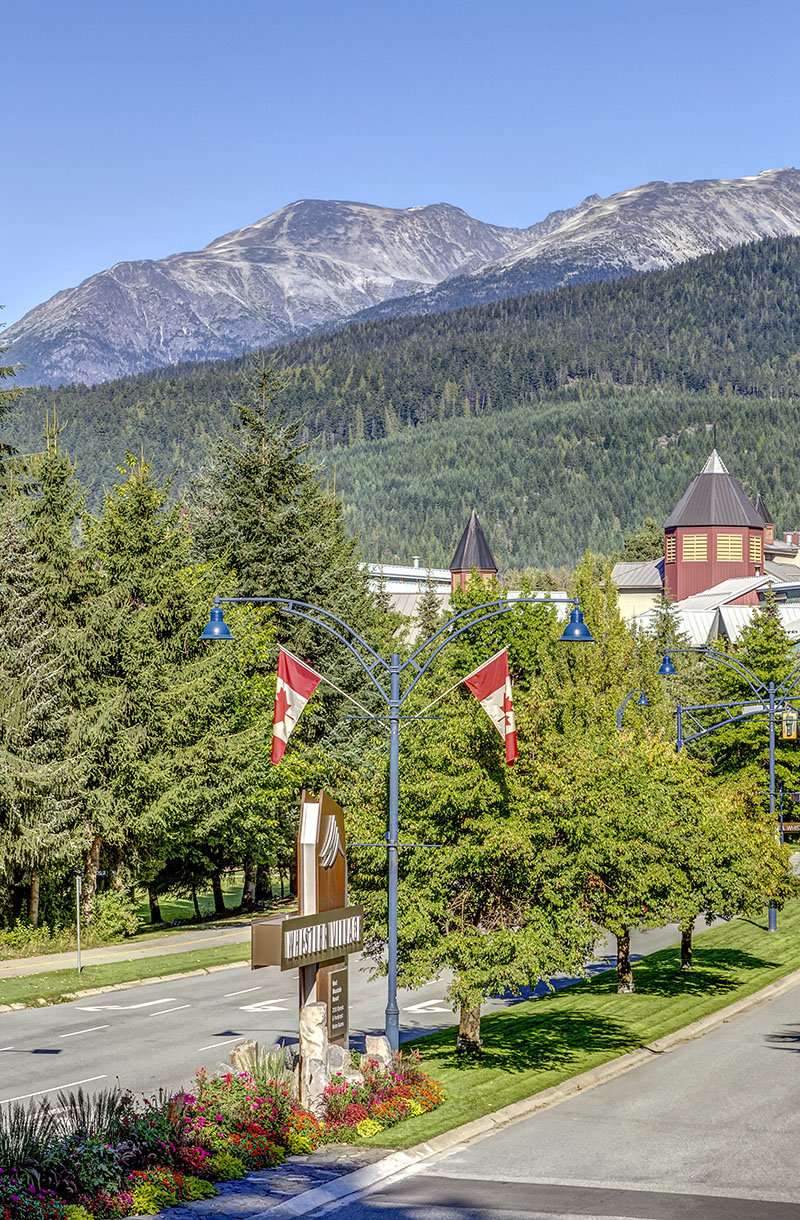
WB’s Whistler Mountain Bike Park is open for adrenaline-fuelled summer riding, giving riders access to the wide array of trails accessed by the Fitzsimmons Express, Garbanzo Express, and Creekside-area lifts through October 11.
Lovers of great art are gravitating to Whistler. In addition to the impressive selection of galleries, the Audain Art Museum, which opened in 2016, features artworks by renowned Canadian artists, including Emily Carr and E.J. Hughes.
Visitors can also learn about local First Nations and their vibrant cultures at the world-class Squamish Lil’wat Cultural Centre (SLCC). You can also take the self-guided “Cultural Connector” walk that stops at the SLCC, Lost Lake PassivHaus, the Audain Art Museum, the Maury Young Arts Centre, the Whistler Public Library and the Whistler Museum and Archives.
Whistler has a dining and nightlife experience for every occasion, with a vast array of restaurants, pubs and patios. Whether it’s relaxation or thrills you’re seeking, there’s no shortage of opportunities for summertime enjoyment here. Welcome!
For help in planning your Whistler holiday, visit Tourism Whistler (whistler.com) or whistlertraveller.com.

